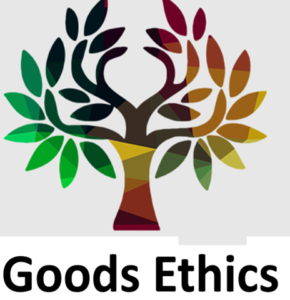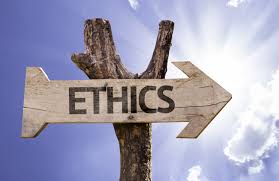What is Ethics?
Ethics is a body of principles or standards of human conduct that govern the behavior of individuals and groups. Ethics arise not simply from man’s creation but from human nature itself making it a natural body of laws from which man’s laws follow.
Ethics is a branch of philosophy and is considered a normative science because it is concerned with the norms of human conduct, as distinguished from formal sciences such as mathematics and logic, physical sciences such as chemistry and physics, and empirical sciences such as economics and psychology. As a science ethics must follow the same rigors of logical reasoning as other sciences.
The principles of ethical reasoning are useful tools for sorting out the good and bad components within complex human interactions. For this reason the study of ethics has been at the heart of intellectual thought since the early Greek philosophers, and its ongoing contribution to the advancement of knowledge and science makes ethics a relevant, if not vital, aspect of management theory. Ethical principles continue, even today, to have a profound influence on many modern management fields including quality management, human resource management, culture management, change management, risk management, mergers, marketing, and corporate responsibility.
Socrates argued that the determination of good or bad behavior depended entirely on the integrity of the rational process. Plato argued that to know good was to do good, that doing good was more useful and rational than doing bad, and that one who behaved immorally did so largely out of ignorance. Aristotle argued that ethics was a purely logical outcome of human nature and it was useful because it was logical. Kant argued that system-wide consistency was a logical requirement of ethics, stating that ethics begins with the rejection of non-universalizable principles, and that any adopted ethical principle must be a desirable universal law to be applied by everybody. Pareto clarified the win-win relationship into philosophical terms by defining Pareto Efficiency as the transactional state where at least one party is better off, most are as well off, and none are worse off. These are just a small sampling of powerful ethical principles that, when applied, will improve performance in any organization.
Ethics is much more than just a collection of values. Values are almost always oversimplifications, which rarely can be applied uniformly. Values tend to be under-defined, situational by nature, and subject to flawed human reasoning such that by themselves they cannot assure true ethical conduct. Consider the sought after value of employee loyalty. Should employees be loyal to co-workers, supervisors, customers, or investors? Since it may be impossible to be absolutely loyal to all four simultaneously, in what order should these loyalties occur? Employers that demand employee loyalty rarely can answer this question completely. Regarding the inadequacy of values, consider this. Murderers, criminals, and liars all have values, so does this make them ethical? Also, killing can be either unethical or ethical (such as in self defense) depending on the situation (religious arguments aside for the moment). For these reasons and more, values by themselves are generally insufficient measures of ethics.
Real ethics calls for a more rigorous treatment of the subject than most business ethics approaches take. Real ethics is a process of rational thinking aimed at establishing what values to hold and when to hold them. Real ethics requires the continuous realignment of values and reasoning patterns in accordance with ethical principles. In real ethics, we must be ready to adjust our values, thinking, and behavior to be ethical and to remain ethical over time. Hence, ethics demands a willingness to change. In organizational ethics we find a metaphysical paradox. Change management requires ethics, and ethics requires change management. Since both are true at the same time, with each preceding the other, we can only conclude one thing: that indeed the quickest way to assure poor ethics may be to require fixed adherence to values.
Real ethics is about ordering the complexities of human behavior in the most useful manner for all involved. Subsequently, in every conceivable human endeavor there exists an ethical component that either succeeds in achieving usefulness and good for all involved, or fails to do so in varying degrees. This gap between reality and the ideal state can be expressed as a quality problem and solved using both ancient and modern management methods.
Ethics Quality occurs when two conditions are met: when a repeatable reasoning process is followed; and when the outputs of this reasoning result in the intents, means, and ends all being “good.” When the conditions for ethics quality are met the organization becomes capable of preventing ethical failure, not just catching and punishing it. Without a means of prevention organizations have no means for controlling its ethics quality. The key to good organizational ethics is awareness and real time detection (before the fact, not after). Both awareness and detection can be greatly enhanced by basic awareness training, training aids and group diagnostic surveys. It is a regrettable fact that most ethical failures in organizations are detected well after the fact making any realistic prevention unlikely.
Poor ethics can be extremely damaging to organizational performance (ref. Enron). When ethical behavior is poor it taxes operational performance in many visible, and sometimes invisible ways. The tax can be on yield or productivity, which is easily measured. The tax can impose itself on group dynamics, suppressing openness and communication, which is hard to measure but easily felt. Perhaps the most dangerous tax is the one placed on risk, which is neither measurable nor easily sensed. Whether the damage is visible or invisible, poor ethics blinds the organization to the realities of their declining environment leaving any organization vulnerable to setbacks that could be avoided.
Good ethics on the other hand have a surprisingly positive effect on organizational activities and results. Productivity improves. Group dynamics and communication improve, and risk is reduced. One reason for this is ethics becomes an additional form of logical reasoning, increasing the flow of information, and adding an additional set of eyes and antennae to give the organization needed feedback regarding how it is doing. Increased reasoning capabilities, coupled with additional information, is a strategic advantage in any business or organization.
Real organizational ethics is a rational process for exploring all possible behavior alternatives and selecting the best possible choices for all involved. Real ethics, at the organizational level, goes beyond personal ethics and values. Real ethics is a collective undertaking, or a team sport, with team like demands and results. Ethical issues in organizations can get complicated very quickly, so much that even the best trained ethicists often will not know what decisions to make or what ought to be done. Such times are precisely when the disciplined reasoning of ethics quality pays off the most. Ethical decisions and their corresponding behaviors in organizational settings are never perfect. However, the quality of the processes applied, as well as the usefulness of their outcomes, is precise and measurable with scientific certainty. It is through the process of ethical reasoning that bad things are preventable and great things become more possible.
Organizations need ethics quality not only to prevent unhealthy behavior but to inspire superior reasoning and performance. It is only through human nature, and ethics, that we can inspire greater levels of innovation, teamwork, and process breakthroughs that result in sustainable competitive advantages. Oliver Wendell Holms wrote, “Once a person’s mind is expanded by a new idea the mind can never return to its original form.” The same is true with management and ethics. When managers understand how ethics makes them better, their role as a manager changes forever. Once ethics is learned we all acquire the ability to see what we often could not see before. We see that using ethics – the reasoning science – to improve individual and group performance is what real ethics -and real management- are all about.

